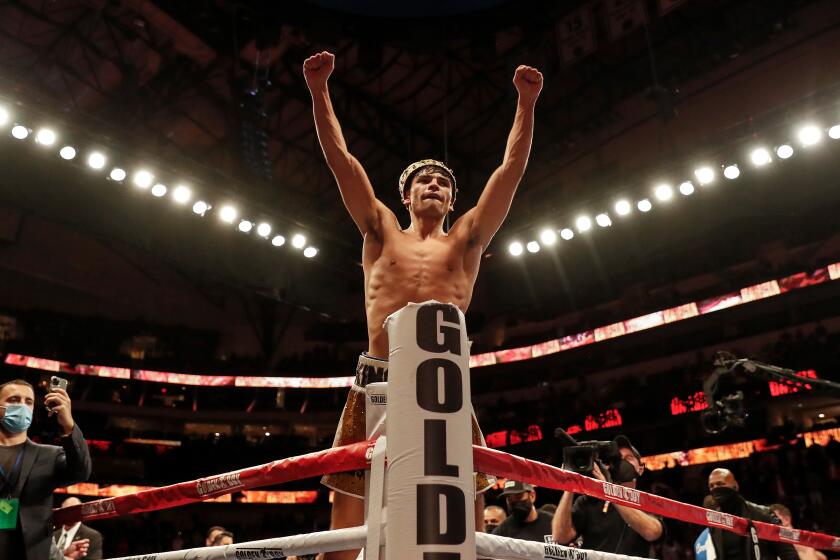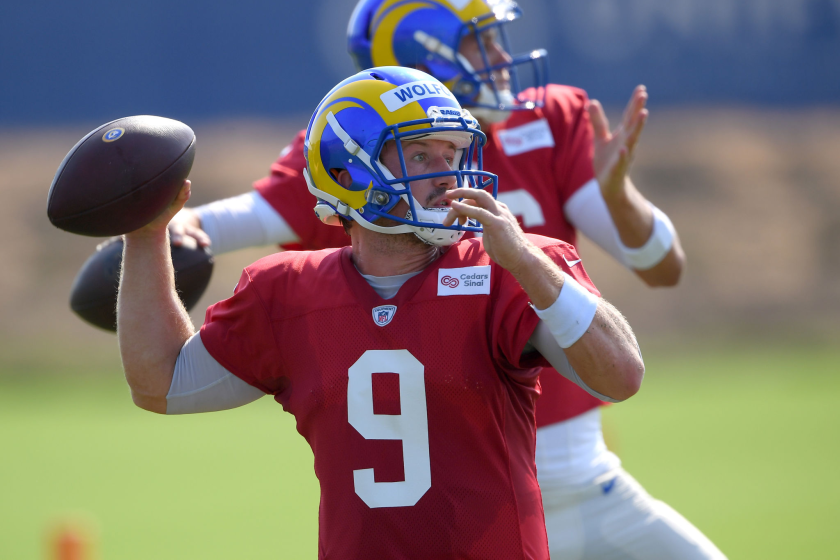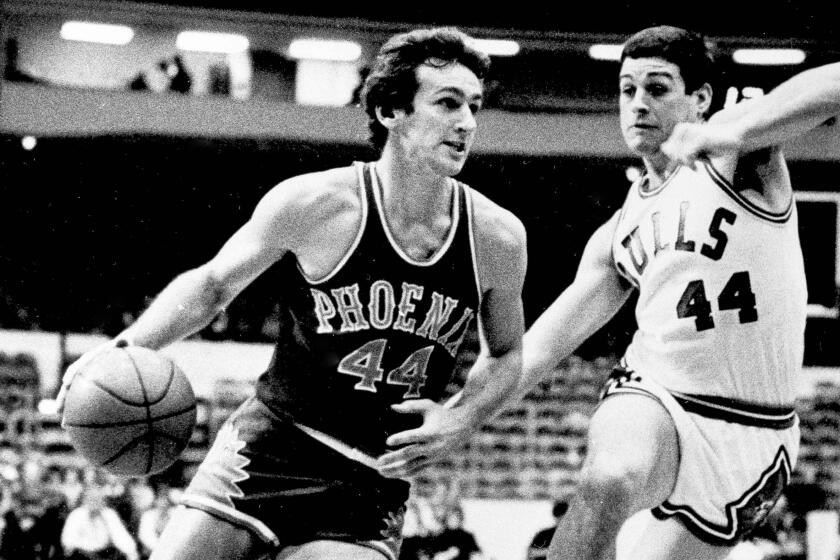Column: Young boxer Ryan Garcia earns thrilling victory, but he has work remaining
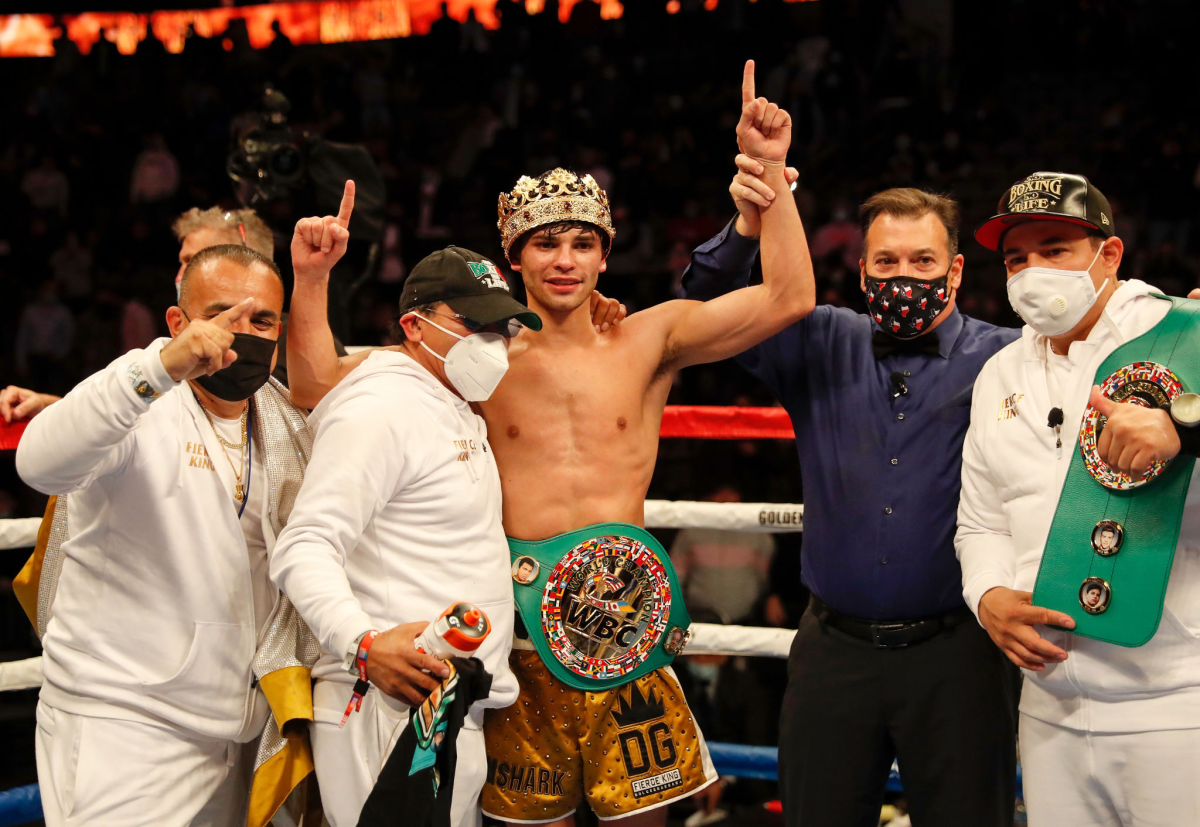
- Share via
Before he displayed his resilience by recovering from an early knockdown, before he demonstrated the extent of his power by stopping a world-class opponent with a punch to the midsection, Ryan Garcia proved he was willing.
The evidence was in his choice of opponent on Saturday night, a crafty southpaw named Luke Campbell.
Or his previously scheduled opponent, former champion Jorge Linares.
Or the fellow prospect he knocked out last year, Romero Duno.
Much of the conversation around the 22-year-old lightweight from Victorville has centered on his boy-band looks, and rightfully so.
His massive social media following separates him from other fighters. But his boldness in the ring is what has forced the industry to view him as a serious prospect.
There will be a temptation on the part of the sport’s power brokers to continue moving along Garcia at this pace.
Ryan Garcia staggered Luke Campbell with a body blow, winning a WBC lightweight title fight on a seventh-round knockout Saturday in Dallas.
And this is where the people around him have to step in.
His promoter, Oscar de la Hoya, has to tell him to slow down.
His trainer, Eddy Reynoso, has to remind him of how much he has to learn.
His mentor, Canelo Alvarez, has to implore him to be patient.
Because as exhilarating as Garcia’s seventh-round knockout of Campbell was, the fight also confirmed suspicions about his shortcomings.
Garcia has one of the quickest set of hands in the sport, but the feet of a European heavyweight.
He appears comfortable throwing punches only when standing flat-footed, which presents a number of problems. He doesn’t throw combinations as often as a fighter with his hand speed should. He can’t fire when retreating and frequently tries to avoid punches by pulling his head straight back with his chin exposed. He has virtually no lateral movement.
His plodding style allowed the left-handed Campbell to keep his lead foot outside of his, putting his head directly in the line for Campbell’s left hand, which produced the second-round knockdown.
Being dropped afforded Garcia an opportunity to showcase a valuable trait: His resilience.
“I think I showed a lot of people who I really am,” Garcia told DAZN in a post-fight interview.
The kid is a fighter.
He is also a puncher.
Like an Aroldis Chapman fastball, the kind of left hook Garcia delivered to stop Campbell in the seventh round isn’t something that can be taught. The solitary blow dropped Campbell to all fours and ended the fight.
The question now is whether the fighter and puncher can become a boxer.
In Reynoso, Garcia has a trainer who has helped another fighter undergo such a transformation.
The fighter was Alvarez.
John Wolford, who will be starting for the Rams on Sunday, has been waiting for his chance to prove his achievements in college were no fluke.
Now the 168-pound champion of the world, Alvarez moves relatively well for a fighter his size. That wasn’t always the case.
Early in his career, he too stood flat-footed.
Under Reynoso’s tutelage, he started fighting on the ball of his front foot, which helped him move better not only in and out, but also side to side.
The change helped Alvarez engage in two even fights with Gennady Golovkin and score a decisive win over Daniel Jacobs.
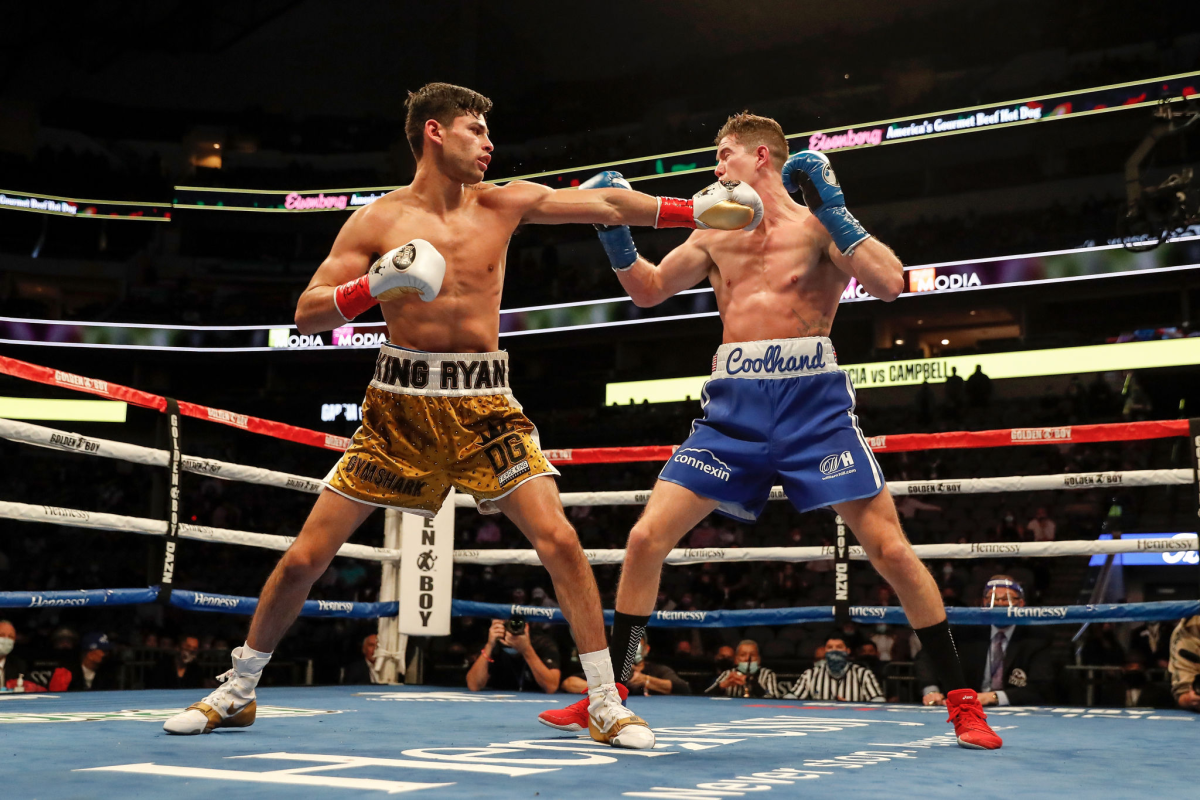
Garcia and his team aren’t the only parties who are counting on him to make a similar transition. The entire sport is too.
This is about more than Garcia’s looks and talent. This is about his list of potential opponents.
He fights at the 135-pound weight limit, which is also where three of the sport’s other top young boxers compete: Teofimo Lopez, Gervonta Davis and Devin Haney.
Shakur Stevenson is a weight class below.
There are major fights to be made. Garcia could have a similar effect on the likes of Lopez and Davis as De La Hoya did on his contemporaries. Previously unknown fighters became pay-per-view attractions after fighting De La Hoya.
The landscape provides for plenty of opportunities, but that also means there are also plenty of more opportunities for failure.
Paul Westphal, the player from Aviation High in Redondo who became an All-American at USC before a professional career as a player and coach, has died.
Immediately after Garcia’s hand was raised in victory, he called out the hard-punching Davis. He also raised the possibility of a fight against Haney.
He’s not ready for either challenge.
But he doesn’t have to be.
Boxing isn’t a place of instant gratification, now more so than ever.
Fighters are more averse to risk than ever and the sport’s audience has been conditioned to wait for the fights it wants to see.
The climate should permit Garcia to take his time. Making a fight prematurely makes as little sense as making a fight past its expiration date.
More to Read
Go beyond the scoreboard
Get the latest on L.A.'s teams in the daily Sports Report newsletter.
You may occasionally receive promotional content from the Los Angeles Times.

